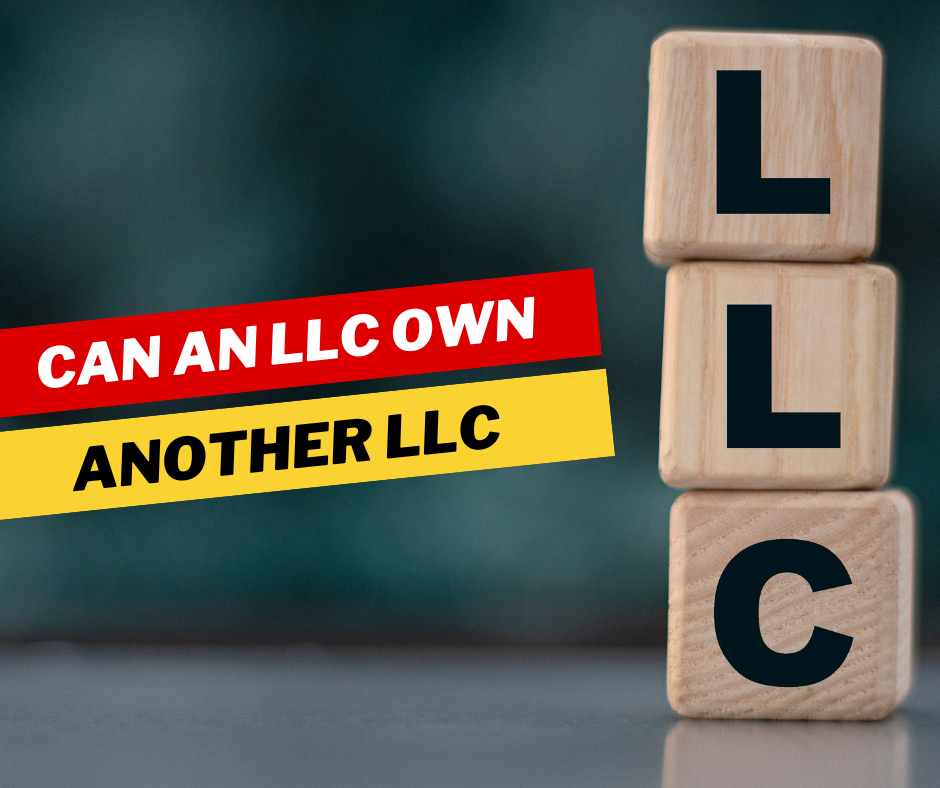In the complicated world of business, ownership structures can take on various forms to suit the needs and goals of entrepreneurs and companies. One common question that arises is whether a Limited Liability Company (LLC) can own another LLC.
To clarify this concept, we’ll break it down and explore the possibilities, benefits, and considerations involved.
What is an LLC?
Before diving into the question of whether an LLC can own another LLC, let’s grasp the fundamentals.
An LLC, or Limited Liability Company, is a flexible business entity that combines aspects of both a corporation and a partnership.
It provides the owners with limited liability protection, meaning their personal assets are generally protected from business liabilities. This structure is favored for its simplicity in management and tax flexibility.
The Idea of LLC Ownership
An LLC can have one or multiple owners, known as members. These members can consist of individuals, other LLCs, corporations, or even entities located abroad. This adaptability in ownership adds to the appeal of LLCs, allowing for diverse partnerships and investment opportunities.
Related Articles:
All About Business Licensing in the UK
Top 10 Business Ideas to Start in UK – Detailed Guide 2023
Tax Obligations for UK Business Owners
But can an LLC itself own another LLC? The answer is yes.
When an LLC becomes an owner of another LLC, it’s often referred to as a parent-subsidiary relationship. The LLC that holds ownership is the parent company, while the LLC being owned is the subsidiary.
This arrangement allows for a hierarchy where the parent LLC exercises control over the subsidiary’s operations and decision-making.
Benefits of Owning Another LLC
Now that we know it’s possible, let’s explore why an LLC might consider owning another LLC.
| Limited Liability Continues | The parent LLC’s liability protection extends to the subsidiary. This means that the assets of the parent LLC are typically shielded from the liabilities of the subsidiary. |
| Risk Segmentation | Owning a subsidiary LLC can help mitigate risks by separating different business activities into distinct entities. This can safeguard the parent LLC’s core operations from potential risks arising in the subsidiary. |
| Tax Efficiency | Depending on the tax laws in your jurisdiction, there might be opportunities for tax benefits or savings through structuring ownership. |
| Strategic Expansion | Owning another LLC can be a strategic move for expanding into new markets, simplify business activities, or entering a different industry. |
Looking For LLC Formation?
If you’re seeking to establish a Limited Liability Company (LLC), Launchese is your trusted partner for seamless company formation. Launchese specializes in guiding entrepreneurs and businesses through the process of setting up an USA-based LLC in Delaware and Wyoming, ensuring a hassle-free process.
We provide guidance and support in creating the necessary legal documents, filing paperwork with the appropriate government agencies, and ensuring compliance with state laws. We can simplify the complex process of LLC formation and save your time and effort.
Note: While setting up an LLC formation, you would generally need to provide information about your business, including its name, address, ownership structure, and other relevant details. We would then help you draft the necessary documents, file them with the appropriate authorities, and guide you through the process from start to finish. Choose your Launchese plan now!
Important Considerations
While the idea of one LLC owning another LLC brings potential benefits, there are important considerations to keep in mind:
1. Legal Formalities: Each LLC must maintain its legal existence, which includes separate financial records, reporting, and compliance.
2. Management Structure: Clearly define the management and decision-making structure between the parent and subsidiary LLCs to avoid conflicts.
3. Liability Separation: While limited liability extends, it’s essential to uphold the separation between entities to ensure liability protection remains intact.
4. Tax Implications: Consult with tax professionals to understand the tax implications of this ownership structure in your jurisdiction.
5. Complexity: Managing multiple LLCs can add complexity to administration, reporting, and governance. Ensure you have the resources to handle this effectively.
Nowadays, the possibilities of ownership structures are as diverse as the ventures themselves. An LLC certainly has the ability to own another LLC, opening doors to strategic expansion, risk management, and tax efficiency.

